Graying of America – Flashcards
Unlock all answers in this set
Unlock answersquestion
Competency: Care of adult 65 years
answer
1) communication 2) physiological and psychological age changes 3) pain 4) SKIN INTEGRITY 5) FUNCTIONAL STATUS 6) Urinary incontinence: 7) Nutrition/Hydration: 8) Falls and injuries: 9) RESTRAINTS 10) ELDER ABUSE 11) DISCHARGE PLANNING
question
Nursing roles
answer
Gerontologic Nurse Generalist Gerontologic Nurse Practitioner Gerontologic Clinical Nurse Specialist
question
Chronological age vs. Functional age
answer
(Years vs What I am able to do)
question
Chronological age
answer
How many years person has lived Used most often referring to age Easy to measure Less meaningful than functional age
question
How do we define old age? How will I know when I'm old?
answer
Experiences with older adults Community Your like/dislike in caring for them Your own goals for aging Health status of the individual
question
Stereotypes:
answer
isolating ideas that set individuals apart based upon supposed characteristic qualities
question
Elderspeak
answer
Elder Older adult Aged Geriatric Addressing older adults The language we use when talking with, or about, older adults reflects our attitudes. Using patronizing or demeaning terminology is disrespectful and can influence others we work with to treat elders the same way. That is why what once was referred to as "geriatric" nursing is now generally called "gerontological" nursing. Our language can have a direct effect on our patients. A recent study by a University of Kansas researcher found that Alzheimer's patients dislike patronizing communication like baby talk or being called honey or sweetie. This is called "Elderspeak." Apparently, the patients didn't care for it because they were twice as likely to become non-cooperative with the nursing staff when the staff used Elderspeak. If they were addressed in normal adult tones and language, they became cooperative again. Old fogy, geezer U OF Kansas researcher found Alzheimer's patients dislike patronizing communication ELDERSPEAK SWEETIE, BABY TALK DEMENTIA PATIENTS WERE TWICE AS LIKELY TO BE NONCOOPERATIVE THAN WHEN SPOKEN TO IN NORMAL ADULT TONE
question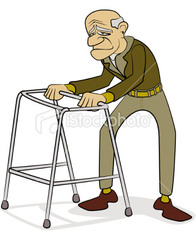
Ageism

answer
Definition (Butler): process of systematic stereotyping, discrimination or prejudice against persons based on the characteristic of age
question
Effects of Ageism
answer
- Infantilizing of the older adult - Discrimination in access to health care - Scapegoating by healthcare workers - Blame-the victim - Overly positive stereotypes
question
how does ageism impact society?
answer
Discrimination in the workplace for older workers...Access to healthcare or services...Social isolation for the elderly. Some of the most negative effects of ageism happen in the healthcare system. Older patients can be infantilized by well-meaning staff. Other patients may become scapegoats for frustrated workers, or some may blame the patient for his or her own physical or cognitive defects. The other side of the spectrum has some people creating overly positive stereotypes of older people. We have all heard our coworkers talk about the "cute little old man in room 435." Although it's easy to fall into this way of thinking about older people, it would be better to try and learn a bit about them as individuals before stereotyping. It could be that "that cute little old man" was a Navy admiral who was once in command of an entire fleet. Or perhaps he was a professor of nursing in a prestigious university. We don't want to be judged by our looks, and neither do older adults.
question
Work ethic and consumerism in North America affect ideas about aging
answer
Some of our attitudes are the result of the American work ethic and consumerism. In this country, the *identity of many people is tied to their work*. When they retire or are no longer able to work, they become "*less valuable*" because they aren't contributing to society as they once did. Some people have the attitude that the "old" are using up all the resources like Social Security or Medicare. *The more Industrialized a country is, the lower the status of older adults. In more agrarian societies, the old tend to be honored*, and multigenerational families live together.
question
Advertising Industry is a significant contributor to ageism
answer
Many of the ads we see dwell on the problems of older people, such as incontinence or impotence. They prey on the fear of some older adults by suggesting that, if you fall down, you are automatically headed for a nursing home unless you purchase their product (such as an electronic alert necklace). Others cater to fear of disease by direct marketing medications or immunizations, such as the new shingles vaccine, to the public. Creates an image in the public's mind of what older adults are about and their problems. Dwells on the problems and issues, not on the ways in which they can contribute Incontinence products Viagra Glucometers Direct medication marketing to the public Skin care products targeted to older adults Celebrity Cruises
question
Cultural Influences
answer
Values & beliefs- more industrialized a society is, the lower the status of older adults Rituals reflect attitudes toward aging and the value placed on older adults
question
Myths & Stereotypes
answer
Old equals sick As the body changes so does the personality Older patients need total care
question
2012:Persons > 65 =
answer
13.4% of US population
question
Who Decides Who is "Elderly"?
answer
Society Culture Influenced by history and gender
question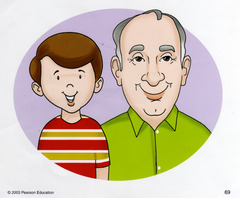
The Young Old

answer
Age 65-74
question
The Middle Old

answer
Age 75-84
question
The Old Old
answer
Age 85+
question
Why is Society Aging?
answer
- Increased life expectancy - Falling fertility rates - Less infant mortality - Better diagnosis, treatment of disease - Life prolonging technology
question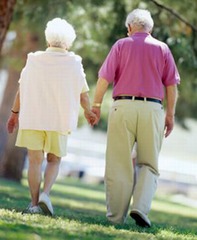
Life Expectancy:

answer
A measurement of overall health status of a population In the last century 30 years was added to the average American's life expectancy
question
Medical advances
answer
- 3 decades ago life was short - Divorce rates lower - Lifetime marriage was the norm - More children born and they stayed near their birthplace - Pneumonia, flu and TB leading cause of death - Short retirements- needed less money
question
Aging America
answer
- 1 out of 8 are age 65+ - By 2030 it is predicted that 1 out of 5 will be 65+ -2002 the 85+ population was 4.6 million - By 2030 projected to be 9.6 million THIS IS WHY WE STUDY GERONTOLOGICAL NURSING!!
question
So, why is this important for us as nurses to know?
answer
Well, by the year 2030, it is predicted that 1 out of 5 people will be over the age of 65, with 1 out of 8 over 85. The nature of our practice will change as our "customers" change. Almost all nurses will be involved in some way with the care of older adults in the future Older adults are already the primary "customer" for our hospitals. Chronicity, or the presence of chronic diseases, such as diabetes or hypertension, has become a huge factor in our healthcare system today. Even though they only represent 12.4% of the overall population, older adults consume a much larger percent of the healthcare product.
question
Cohort

answer
People born within same decade or time period - Men born between 1920-1930= WWII & Korean Wars - Men born between 1940-1955= Vietnam - Women born between 1920-1930= traditional - Women born between 1950-1960= women's movement
question
Sex & Marriage!
answer
- Women live longer than men - Women more likely to live alone- widow - Men who survive wives often remarry - Women usually have social networks that reduce isolation
question
So what does this older generation look like?
answer
Women generally live longer than men! The feminization of the elderly will occur due to women living longer than men. Even if men survive their spouses, they tend to remarry but may still have a shorter lifespan. Nurses need to be prepared to meet the needs of older women in this generation Why? Women live longer than men Even if men survive their spouse the tend to have a shorter life span Marital status can strongly affect the emotional and economic well being of older adults by influencing living arrangements and availability of a caregiver Those living with a spouse decreases with age
question
Gender Health Issues Related To Aging
answer
• Women --------o Osteoporosis --------o Breast & uterine cancer • Men -------o Prostate enlargement & cancer • Both -------o Cardiac (women less than men)
question
Who Do They Live With?
answer
Of those not in nursing homes --55% live with spouse --30% live alone --15% live with someone else
question
older adults trends
answer
• Nursing homes- mostly 85> • Trend is for older women living alone • This is where it is heading with shifts in population- women living alone • The number of HIV/AIDS cases among older people is growing every year because: • Older Americans know less about HIV/AIDS than younger people. They do not always know how it spreads or the importance of using condoms, not sharing needles, getting tested for HIV, and talking about it with their doctor.
question
older adults trends
answer
• Health care workers and educators often do not talk with middle-age and older people about HIV/AIDS prevention. • Older people are less likely than younger people to talk about their sex lives or drug use with their doctors. • Doctors may not ask older patients about their sex lives or drug use, or talk to them about risky behaviors • Homeless persons aged 50-65 frequently fall between the cracks of governmental safety nets: while not technically old enough to qualify for Medicare, their physical health, assaulted by poor nutrition and severe living conditions, may resemble that of a 70-year-o • Older homeless persons also suffer more frequently from a variety of health problems such as chronic disease, functional disabilities, and high blood pressure than are other homeless persons (Cohen, 1996 • People who experience homelessness for long periods of time simply do not reach age 62 • 37% of very low income elderly people receive housing assistance (U.S. Department of Housing and Urban Development, 1998). • Homelessness will increase with advent of baby boomer generation AOA
question
Where Do They Live?
answer
- Only 4.1% of age 65+live in nursing homes or skilled nursing facilities - Age 85+= 14.3% - Independent Living - Assisted Living- 2.4% -Community - 2% of people in homeless shelters are older adults (NHC)
question
Economic status
answer
- Federal Poverty threshold for individual >65 is $_$10,210 ______/ yr income (2014) $_$13,690 _______/yr for couple - % Of age 55+ below poverty =__9.95_____% - % of elderly below threshold is declining - Older women & minorities have higher poverty rates Many have assets but no cash
question
What are the implications of poor economic status for health status?
answer
- At risk for inadequate food - Housing - Transportation - May have to make choices between medication & food - Special diets - Nurses need to know programs available for referrals
question
Education Level of 65+ 2009
answer
78% have graduated from High School 21.7% have a Bachelors or higher degree
question
Cultural Trends- Minorities (2012)
answer
- Age 65+ minorities % of total population: - 8.3% African American - 3.4% Asian - 15% Hispanic - 1% Native American/Alaskan - Hispanic population is the fastest growing group (US - Census Bureau 2012)
question
Culture has impact on health behaviors
answer
- Cannot stereotype within ethnicities- subgroups - Hispanic- variety of countries, economic levels - What are the implications of this trend? - Language, health promotion , dietary, use of herbal medicines, poverty, - Research has mostly been done on white subjects- implications for ethnicities medications tested
question
By 2030 ______% of older adults will be minority
answer
25
question
By 2050 ______% of population will be minority
answer
54
question
2010 Projected Life Expectancy =
answer
Total Avg-77.4 yrs
question
Life expectancy
answer
White male= 75.5 yrs Black male= 65.1 yrs White female= 81.6 yrs Black female= 75.5 yrs
question
Most Common Chronic Illnesses in Older Adults
answer
- 50% of elders report at least 1 disability - Osteoarthritis - Hypertension - Heart disease - Hearing loss - Diabetes - Joint impairment - Cataracts - Sinusitis
question
Leading Causes of Death in Age 65+
answer
- Heart disease (CHF) - Cancer - CVA - COPD - Pneumonia & Flu - Diabetes - Infection often immediate cause of death in those with chronic illness (US Census Bureau, 2000)
question
Current Trends
answer
- Feminization of the elderly - More people are alone - Baby boomers entering old age
question
The Boomers are coming!
answer
BORN BETWEEN 1946-1964 76.1 MILLION PEOPLE COMING 1ST BOOMER JUST APPLIED FOR SOCIAL SECURITY THIS YEAR AT AGE 62
question
Boomers
answer
- Obesity a problem - Increasing demands on health care services due to volume - Increasing homelessness - Increasing institutionalization - Computer literate- health - Higher education - Better baseline health status - HIV status
question
Boomers
answer
As the boomers enter the picture, the average level of education will increase. This group will be computer savvy and have more knowledge about their health than any other generation. Obesity and positive HIV status will be problems. This group will see increasing institutionalization as they age, and gay seniors will become an emerging trend Better education- used to better access to health care different expectations AOA 19% of >50 yrs have HIV/AIDS SEXUALLY ACTIVE SENIORS- DON'T THINK THEY HAVE TO USE PROTECTION DATING YOUNGER PEOPLE
question
Emerging Trends
answer
- Use of Genomics in development and prescribing of medications - Study of cellular anatomy- aging - Use of nutrition to prolong life- modifying diets
question
The future of older adults
answer
So, in the future, the older adult will most likely be female, living at home alone, possibly with low income. She may be non-English speaking and will most likely have at least one disability. Armed with this information, we, as nurses, are in a better position to prepare ourselves and our healthcare systems to care for the upcoming generation.
question
Personal space-
answer
privacy. If they don't get this they may throw up psychological walls to create some privacy and protection from personal invasion
question
Life space
answer
- our community, the workd. As we age and are limited by mobility or economics or energy it will become more constricted
question
Aging In Place How to Remain at Home
answer
Case Management - Gerontological Care Managers Advocacy and case management - What do they need? - Homemaker services - Transportation - Medical / Rehab services - Home health- Medicare/CBA - Home modifications & safety - Mobile meals
question
Senior Housing Options- a Continuum
answer
Independent living at home/shared Living with Family / Granny Flat Senior Retirement Community Life Care Retirement Community ----- Independent ----- Residential Care/ non medical ----- Boarding house style living/semi independent ----- Assisted living ----- Skilled Nursing/ several levels
question
Where Do Older Adults Live and Who Pays?
answer
Independent - Self Assisted Living - Self or possibly CBA Nursing Home - Self &/or Medicaid Skilled Nursing - Medicare or Insurance
question
Retirement
answer
- In the country, elders worked until death - Exodus to cities to work in factories in early 1800's - Retiring = "No longer qualified to work" - Families could not afford to support elders
question
Sources of Income
answer
- Still working full or part time -----------Anticipated that Boomers will keep working - Personal investments - Reverse Mortgages and other credit - Predatory lenders & scams directed at the elderly - Social Security
question
Social Security
answer
- Social Security Act- 1935 - Great Depression - Provided monetary benefits to citizens & legal residents > 65 or disabled - Goal- prevention of destitution & dependency on younger workers
question
Source of Social Security Funds
answer
- Benefit calculated on average salary during working years - Payroll taxes from employees & employers - Distributed to retirees & disabled - Pay-as-you-go system - Immediate transfer of funds from those well off to the relatively poor - Balance is shifting - Living longer- SS age increasing - Born <1937 eligible at age 65 - Born 1943-1954 eligible at 66 - Born after 1954 eligible at 67 - Volume of Baby Boomers is going to strain the system - Concern that more $$ will go out than come in
question
Supplementary Security Income For Low Income Seniors
answer
- SSI- amendment to SS Act - For persons 65+, blind or disabled - Receive a minimum income regardless of previous earning power - 2003- threshold set @ $564/month - If Social Security income is less than threshold then supplemented with SSI
question
What About Healthcare Costs?
answer
- Number of seniors is rising - Living longer and run out of money - More chronic health problems - Charges for health services are rising - Ability to pay for goods & services over the lifespan decreasing
question
Sources of Funding Healthcare Costs
answer
- Pensions with health benefits - Savings - Private policies (usually Medigap) - Medicare - Medicaid - Other sources THE FEDERAL GOVERNMENT IS THE #1 PAYER FOR HEALTH CARE IN THE USA
question
Medicare

answer
- 1965 (title XVIII of the Social Security Act) - LBJ's Health Insurance for the Aged and Disabled Act. - Foundation for retirees' protection against heavy medical expenses. - Administered by the Centers for Medicare and Medicaid Services (CMS) formerly the HCFA
question
Medicare,
answer
• a part of Lyndon B. Johnson's Great Society program, was the first federal health insurance program for people 65 and older and some disabled people under 65. • It was enacted into law by the United States government in 1965 (Title XVIII of the Social Security Act), also known as the Health Insurance for the Aged and Disabled Act, and it became effective July 1, 1966. • *It was never intended to pay 100% of medical bills, but it is the foundation for retirees' protection against heavy medical expenses*. Medicare has "gaps" in coverage, where the beneficiary must pay a portion of medical expenses. There are various covered and noncovered services. Generally, services considered to be routine are not covered under Medicare. There are exceptions which include: flu, pneumococcal and hepatitis B vaccinations, pap smears and mammograms; however, there may be time restrictions to coverage. • It is administered by the Centers for Medicare and Medicaid Services (formerly the Health Care Financing Administration) which is an agency of the U.S. Department of Health and Human Services, but ultimately controlled by the U.S. Congress. •
question
Medicare Eligibility
answer
- Anyone eligible for Social Security - SSI or - Railroad Retirement benefits
question
Medicare
answer
Part A Part B Medicare D Medicare Advantage
question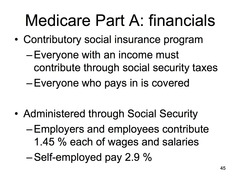
Part A. : Hospitalization Insurance

answer
- Supported by Payroll Taxes on current workers & co-payments by beneficiaries - Automatic when you turn 65 - May be eligible based on spouse's eligibility - May purchase Medicare A if not eligible - Covers: -------- Inpatient hospitalization -------- limited care in skilled nursing facility or rehab -------- home health services -------- hospice care -------- therapy services -------- NOT personal care or custodial care
question
Pay For Performance
answer
- Effective 10/1/08 Medicare does not reimburse hospitals for treatment for the following preventable conditions: ------- Hospital acquired injuries (fractures, dislocations, burns etc)...FALLS ------- Mediastinitis post CABG ------ UTIs from catheters (adds $696 to bill) ------ Hospital acquired or worsened pressure ulcers ( avg charges = $40,381) ------ IV catheter related infections ------ Air embolism ------ Blood type incompatibility ------ Objects left in a patient during surgery ------ Nosocomial infections (add $15,000 to the bill)
question
Pay For Performance
answer
CMS considering adding: ---- Vent associated pneumonia ---- MRSA septicemia ---- DVT/ Pulmonary embolism ---- Physicians ---- Home Health ---- Dialysis Centers ---- Not just Medicare- private insurers as well - Implications for Nursing/ Nurse Sensitive Indicators - Very thorough admission assessments - Consistency in identifying wounds and staging pressure ulcers - Process Improvement to ensure optimal outcomes
question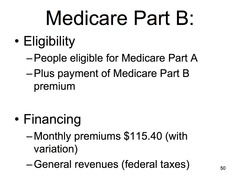
Medicare Part B

answer
- Premium deducted from Social Security Check - currently around $135/month - Co-pays & deductibles apply - Covers: ------- Physician & NP services ------- Outpatient hospital services ------- Diagnostics ------- Outpatient rehab services ------- Vaccinations & some low vision care ------- Dialysis supplies and support services ------- Diabetic supplies & training ------- Rural health clinic services ------- Encouraging prevention and health maintenance - now- many do not utilize
question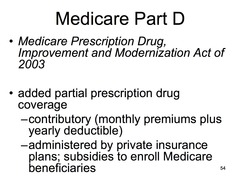
Medicare Part D

answer
- Prescription Drug Benefit added 2006 - Beneficiaries sign up with provider annually during "open enrollment" - Swindlers ---------- Door to door, forging signatures, fraud - Deductible & co-pay apply - "Doughnut Hole" hits when drug costs reach $2,510 ---------- Patient then absorbs $3,216 out-of-pocket until cost hits $$5,726 --------- Catastrophic coverage then kicks in --------- Encouraging patients to use generics if possible -------- 4.2 million reached the "hole" last year -------- Many will not fill RXs
question
Medicare Advantage Plans
answer
• Private fee for service plan • Government currently pays insurers $9,000/yr per person enrolled • Beneficiary no longer has traditional Medicare!! -------o Capitation- acts like HMO -------o Small co-pays, drug benefits -------o Secret is volume -------o Prevention is key- Disease Management -------o Rationing or controlling cost & access to services -------o Few providers - may have to change Doctors • Agents commissions= $350-600/person signed up • Potential for Scams -------o Fake health insurance plans -------o Telemarketing preying on seniors -------o Obtaining personal information- identity theft
question
Medicaid
answer
- Title XIX of the Social Security Act enacted in 1965 - Federal / State entitlement program- differs from state to state - Pays for medical assistance of certain individuals and families with low income and resources - Test for eligibility: low income- States set own eligibilty standards and payments - 10% were older adults - States administer their own programs - Managed Medicaid (HMO) common
question
Medicaid
answer
Generally pays for: - Medicare premiums, co-pays & deductibles for very low income people - Does not help the "near poor" - Medications on limited basis - Custodial care in nursing homes - Certain supplies and DME - May cover in-home personal care and other services - through Community Based Alternative care (CBA)
question
Home Care
answer
- Medicaid pays for long-term home health care - Type and amount of care available varies from state to state - Medicaid-covered services - Home Health Attendants - Physician, Nurse Practitioner - Professional Nursing Home visits
question
Nursing Home
answer
- Medicare pays for short-term (100 days or less) skilled nursing home care - medically unstable. -------Skilled care: rehab services, wound and catheter care, teaching patient and family to give injections - Older adult must be able to participate in rehab to qualify for Medicare coverage



